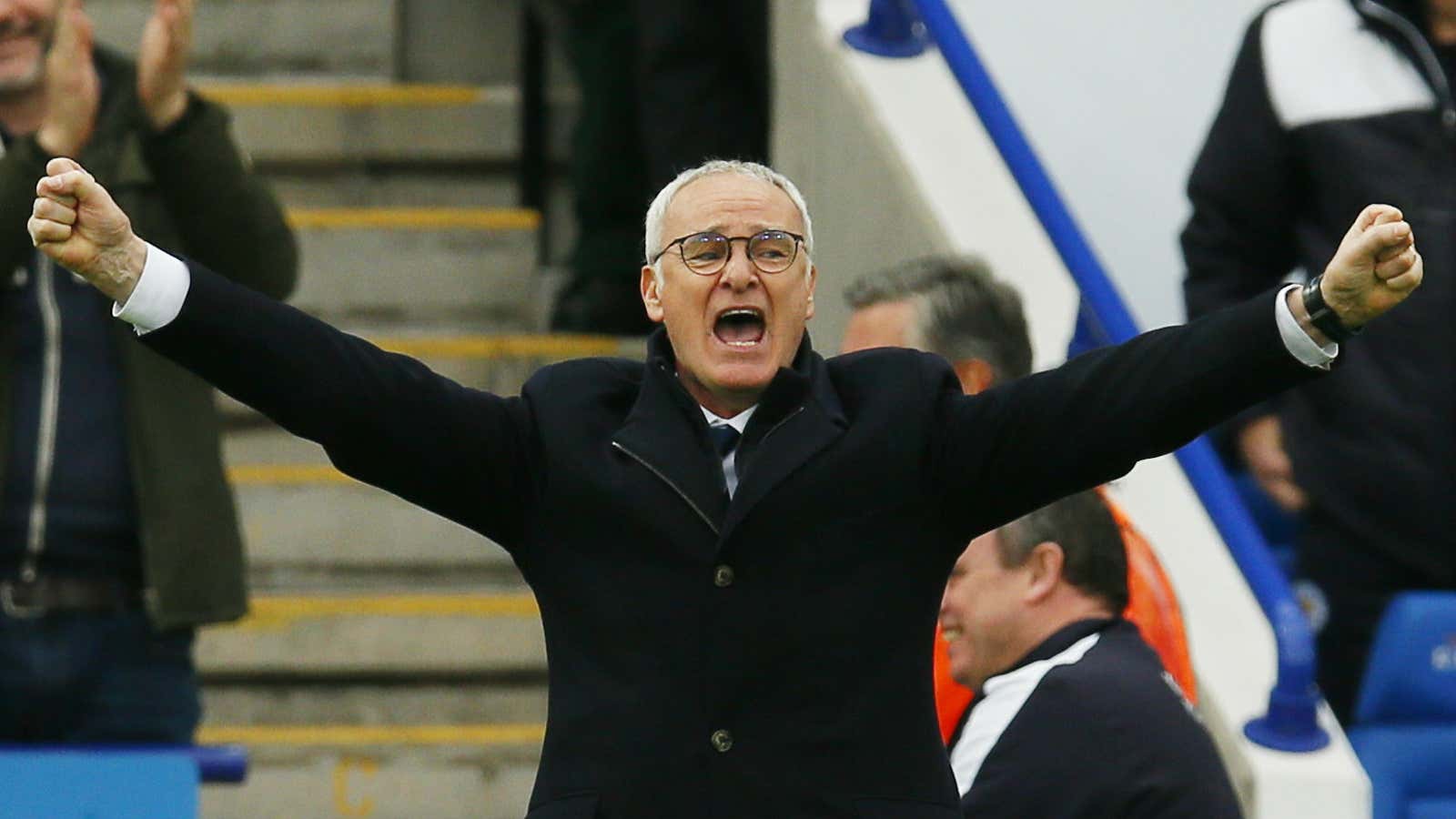If you haven’t heard of Claudio Ranieri, or appreciate what he achieved in his first season in charge of English soccer club Leicester City, it’s time to familiarize yourself with his story—he’s about to become the go-to role model for ambitious business leaders everywhere. The 64-year-old Italian coached the 5,000-to-1 underdogs to the unlikeliest of championships in the Premier League this season, with a backstory and style perfectly pitched to the modern management zeitgeist.
In his 30-year management career, Ranieri coached at 12 clubs before joining Leicester last year. He was sacked from seven of them, and never won a league title during that time. His last appointment before Leicester was a short, disastrous spell in charge of the Greek national team, which featured a home loss to the Faroe Islands.
In the business world, failure is in fashion right now. Startup founders love relaying the lessons learned from past letdowns. CEOs relish quizzing prospective hires on their failings, looking for a combination of self-awareness, vulnerability, and fortitude that comes from being knocked down and getting back up.
Despite managing some of Europe’s biggest clubs, Ranieri gained a reputation for failing at the final hurdle, with several second-place finishes on his résumé. At Chelsea, he became known as “The Tinkerman” for his frequent, ineffective, and inexplicable changes to lineups from one game to the next.
At Leicester, Ranieri is a changed man. He has used the same players, in the same formation, more than any other team in the Premier League this season. Tactically, too, he has committed to what consultants dub a “core competence”—ceding possession to opponents and setting everything up to serve fast-paced counterattacks. This strategy allowed a squad of speedy players with otherwise unremarkable careers (and paychecks) to act as a devastating unit against star-studded opposition. Reinforcing the team-first spirit were simple acts that nurtured a tight-knit culture at the club, like pizza parties after victories.
Ranieri’s Leicester is the embodiment of the scrappy innovation that sends venture capitalists’ pulses racing. Just as startup founders bill their companies as the “Uber for X,” expect the “Leicester City of X” to soon enter the lexicon, a byword for a lean operation that takes on richer rivals and wins, against the odds.
Ranieri’s own personal story, a series of iterations following failures that culminates in a blockbuster triumph, is equally appealing to those toiling away in hopes of a big break. He has paid his dues.
“I’m very happy now,” Ranieri told reporters this morning. “Maybe if I had won this title at the beginning of my career I would have forgot. But now I am an old man, I can celebrate.”
